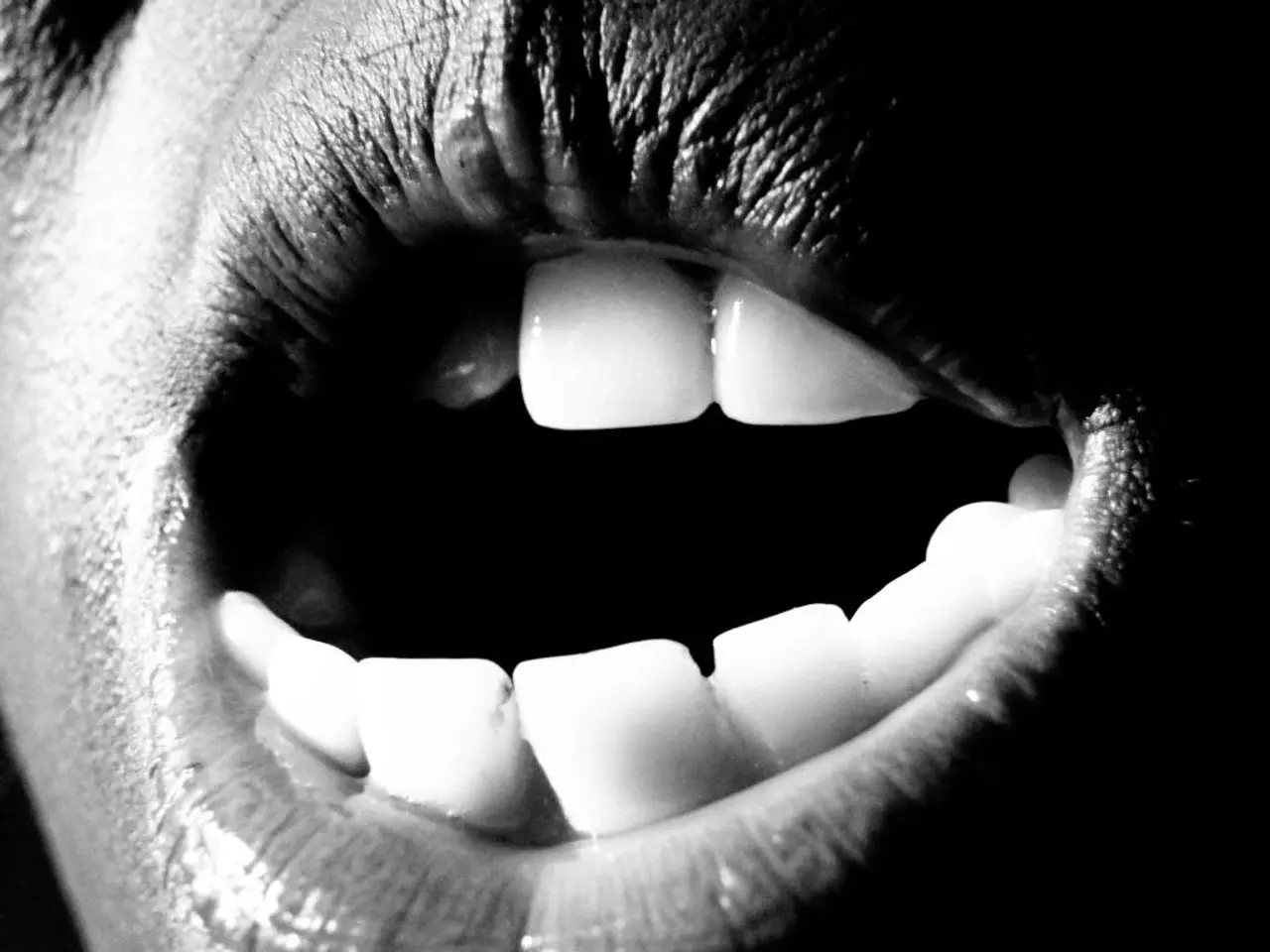Adults' increasing fascination and growing popularity of using pacifiers (also known as "soothers") beyond infancy.
In recent times, a peculiar trend has been gaining traction across social media platforms, from China to Europe and the US - the use of adult pacifiers. These devices, larger than average child dummies, are being marketed as stress-relief tools and even touted for potential benefits such as pain relief, stress reduction, and help with smoking cessation. However, the French Orthodontic Federation (FFO) has cautioned against this trend, stating that these alleged benefits are based on isolated testimonials and lack a proven scientific basis.
The FFO has further advised social media users to seek professional consultations, citing concerns about oral problems such as jaw strain, teeth misalignment, and infections that could arise from prolonged use. The trend can be linked to regression, a type of defense mechanism characterized by age-inappropriate impulses, and oral fixation, a coping mechanism that denotes an individual's focus on oral activities.
Despite these concerns, many users continue to advocate for their use. Some claim that adult pacifiers help with conditions like ADHD, sleep apnea, and even smoking cessation. Online fans describe them as "soothing" and "safe". However, experts, including psychologists, have voiced concern over the trend, arguing that adults may be avoiding the underlying causes of their anxiety.
Dr. Tang Caomin, a dentist in Chengdu, Sichuan province, warns that prolonged use of adult pacifiers can interfere with breathing and potentially cause suffocation. This is a serious health risk that should not be overlooked.
The surge in adult pacifier sales is evident on e-commerce platforms like Taobao and JD.com. Interestingly, the shape of vapes may share a common aesthetic/gesture denominator with adult pacifiers, leading some to speculate about the psychological implications of this trend.
The rise of adult pacifiers raises questions about the nature of emotional fragility in modern society. While some argue that these devices provide a harmless means of coping, others, including certain commentators, criticize passive pacifism in the face of figures like Putin, advocating preparedness for physical defense.
As the debate continues, it is essential to approach this trend with caution and consider the potential long-term effects on mental and physical health. Seeking professional help and addressing the root causes of anxiety and stress remains the most effective strategy for long-term well-being.
Read also:
- Honoring Ayurveda Day 2024: Tapping into the Power of AYUSH for Worldwide Wellbeing
- casesof West Nile virus resulting in fatalities in Greece, with seven individuals confirmed to have succumbed to the disease
- Nutrient-Packed Wonders: Why Sardines Deserve Respect for Their Health Benefits
- Assessing the Importance: Deciphering the Meaning Behind an Attention Deficit Hyperactivity Disorder (ADHD) Diagnostic Examination





